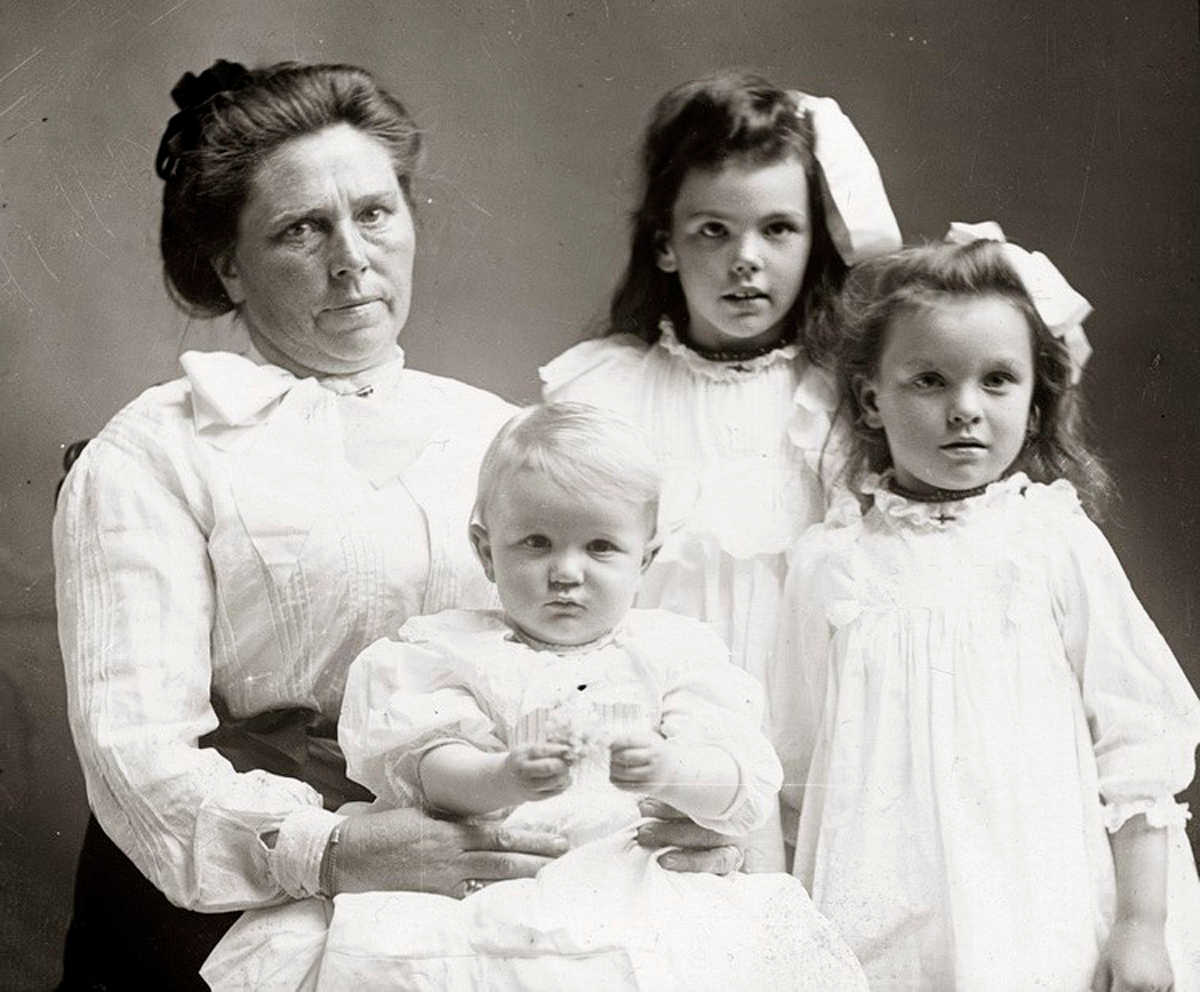via The National Archives Blog by Andrew R. Little

via Wikipedia: by Jens Mohr - LSH 88974 (sm_dig3546), Public Domain, Link
In June 1667, the Dutch fleet forced its way up the river Medway to the main naval base at Chatham. There the Dutch destroyed a number of the most powerful and valuable British warships and captured the fleet flagship, Royal Charles, named after the reigning monarch, Charles II. This was a great blow to the king’s image – the largest warships were powerful symbols of national prestige.
Continue reading
=============================
Belle Gunness lured lonely men to her Indiana farm to rob and kill them
via Boing Boing by Futility Closet

Belle Gunness was one of America’s most prolific female serial killers, luring lonely men to her Indiana farm with promises of marriage, only to rob and kill them. In this week’s episode of the Futility Closet podcast we’ll tell the story of The LaPorte Black Widow and learn about some of her unfortunate victims.
Continue reading
=============================
Episodic Children's Books
via An awfully Big Blog Adventure by Heather Dyer

When I was a child the books l loved best were episodic. That is, they contained several mini-adventures within an overall narrative arc. Enid Blyton was the first author I encountered who used the episodic model in books like The Adventures of the Wishing Chair and The Magic Faraway Tree.
Continue reading
=============================
Merchant Navy ships’ official logs project
via The National Archives Blog by Pad Kumlertsakul
A log book is the official record of life on a ship, and includes information about what has happened during each voyage. The requirement for the master of a ship to keep official log goes back to about the 18th century; as a result of the Merchant Shipping Act of 1850 British merchant ships were legally required to keep an official log.
From 1852 logs start to appear among official records, but after 1874 they appeared to be routinely discarded when vital information had been extracted. However there was a legal requirement to keep logs that contained information on a birth, marriage or death as this was often the only recorded mention of the event. The ships’ official logs can be found at the National Archives in series BT 165.
Continue reading
=============================
Hot Cockles and other weird medieval party games
via Boing Boing by Andrea James

Claire Voon takes a fascinating look at engraver Joseph Strutt's illustrations of strange medieval party games, many of which involve beating the hell out of other guests.
Continue reading I am not sure that the words weird and strange are quite strong enough to describe these activities. The word game means to me that I am going to have fun and not be humiliated.
=============================
Welcome to Snorting Chocolate
via Big Think by Robby
The music’s so loud you’re losing your voice shouting to your friends, the place is filled with throbbing, darting colors, and the whole place is like some fever dream. Over there at that table, people have rolled-up Euro banknotes held up to their noses and lines of powder laid out on the table before them, nearly hidden behind their half-finished drinks, and wait, what? What are they snorting? That looks like…chocolate. It probably is. Just in time for World Chocolate Day – as if every day isn’t Chocolate Day – word reaches the U.S. of one of Europe’s latest trends: snorting cacao powder.
Continue reading
=============================
How Paul Robeson found his political voice in the Welsh valleys
via the Guardian by Jeff Sparrow

Paul Robeson in relaxed mood at the piano in 1958.
Photograph: Keystone Features/Getty Images
Paul Robeson possessed one of the most beautiful voices of the 20th century. He was an acclaimed stage actor. He could sing in more than 20 different languages; he held a law degree; he won prizes for oratory. He was widely acknowledged as the greatest American footballer of his generation. But he was also a political activist, who, in the 1930s and 1940s, exerted an influence comparable to Martin Luther King and Malcolm X in a later era.
Continue reading
=============================
A Summary and Analysis of ‘Snow White and the Seven Dwarfs’
via Interesting Literature
The meaning of a classic fairy tale
Blood wishes, talking mirrors, and poisoned fruit: it’s all here in ‘Snow White’, one of the most enduringly popular and recognisable fairy tales in western literature. Yet what is the story of Snow White and the seven dwarfs really about? Does it have a moral? And what are the fairy tale’s origins? Closer analysis of the Snow White story reveals a hideous and gruesome tale which Disney had to sanitise to make it palatable for family audiences.
Continue reading
=============================
Legendary Betty Davis and Miles Davis funk/fusion/psych session released
via Boing Boing by David Pescovitz

In 1969, high priestess of funk Betty Davis recorded two legendary sessions produced by her then-husband Miles Davis at Columbia's 52nd Street Studios in Manhattan. The band consisted of Mitch Mitchell (Jimi Hendrix Experience drummer), John McLaughlin (guitar), Herbie Hancock (keys), Billy Cox (Band of Gypsys bassist), Wayne Shorter (sax), and Larry Young (organ). Teo Macero co-produced. In nearly 50 years, those jams have never been officially released or even bootlegged. Now though, they are available for the first time from the fine folks at Light in the Attic Records.
Continue reading
=============================
A Summary and Analysis of ‘The Emperor’s New Clothes’
via Interesting Literature
The meaning of a classic fairy tale
Hans Christian Andersen (1805-75) is known throughout the world for his fairy tales, which are characterised by their focus on the individual who somehow stands apart from society: the Little Mermaid because she wants to be part of the human world but belongs in the sea, the Ugly Duckling because she’s considered ugly by the other ducks. But perhaps the most intriguing of all of Andersen’s outsiders is the (ungendered) child who shouts out the truth at the end of ‘The Emperor’s New Clothes’, a fairy tale deserving of closer analysis because of the way it has cemented itself in Western consciousness as a shorthand for spin over substance, or carefully-engineered illusion over truth. In our ‘post-truth’ times, the emperor’s new clothes have become part of our collective dirty political laundry. ‘Spin’ is all.
Continue reading
No comments:
Post a Comment